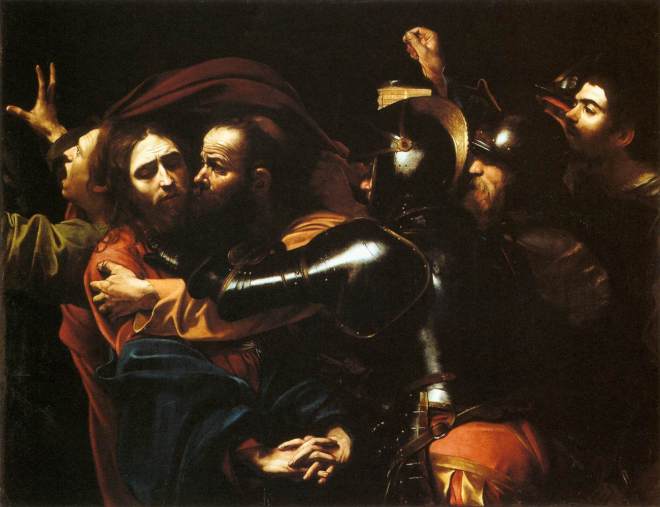You notice, don’t you, the anniversaries of important events? Not just weddings and birthdays, but funerals, anniversaries of difficult diagnoses, the dates when tragedy struck or an accident happened. Our bodies remember, too.
And so I find it’s not a surprise that Holy Week and especially Good Friday, feels heavy the world over. There’s a cosmic echo we just can’t shake, this ultimate tension that is imprinted on our internal calendars, on the time keeping of the whole world; we know in a deep part of us that something happened, something big, on this day.
Today we remember and re-enact the pivotal moment of time. Two thousand years ago, today was an experiment. What would happen if evil killed God? What would happen if God didn’t use his God-power and just stayed, just died, along with us?
The love of God incarnate had never been tested this way. What would happen to the fabric of the universe? Would God’s love win? What would that winning look like?
It didn’t look the way the disciples assumed, with swords and uprising and political revolution. It didn’t look like the Pharisees expected either, with peaceable conformity and cultural-convention-concerned movements. I wonder if it is the way that we suppose it is, either. I wonder whether the hints of resurrection in our own lives, whether the victory of God in our midst, is in a form that we recognize and celebrate and follow.
I’ll be honest, brothers and sisters. The odds aren’t in our favor. More often than not in Scripture, the people have it all backwards. More often than not in Scripture, the disciples get it all absolutely wrong. More often than not in Scripture, the prophets are murderd and the world turns away from the truth and the principalities and powers and contemporary victories are on the side opposite God.
Indeed, in the end, on this day, Good Friday, the disciples abandon Jesus. Peter denies Jesus three times. At Golgotha, there were the women, and according to John’s account, himself as well. All like sheep had gone astray, each one to his own way, and he bore on himself the iniquity of them all.
How could it be that winning, that victory, could look like death on a cross? This is not at all how it ought to have been. Power is security and luxury and leisure. These are the rewards for work well-done. That’s the lesson that the Pharisees took from the Old Testament, surely. But that’s not the message that Jesus bears.
Jesus’ method is the same as his message, and the God revealed in Jesus Christ came to be with us. For thirty years, for 90% of his life, he spent his time just being. Growing up with friends and loved ones in Nazareth. Learning the family trade from Joseph his father. Going to synagogue and growing in wisdom and serving his community. He spent 9% of his life, those three years of itinerant preaching, teaching and healing – some call it his active ministry, but I wonder whether perhaps the whole of his life is an active ministry. And when he was in Jerusalem, when he was on the cross, he did the bit that only God could do, no human could endure the cross for our sake, but him. He stretched wide his arms upon the cross that everyone might come within the reach of his saving embrace.
We see God’s love in this: no matter the cost, God in Jesus Christ stayed with us. Even when death came to pierce his hands and feet, Jesus would not abandon humanity. Even when he was ridiculed and striped and given the death of a criminal, Jesus did not call upon the powers at his disposal to save himself – because to do so would be to abandon his humanity, to pull the God card and not stay with us as his creation to the very end.
On that Friday afternoon two thousand years ago, the world ended and we feel its echo, its grief, even today. Everyone wondered then: is this what winning looks like? Perhaps we still wonder today – is this all there is, is this what winning looks like? Our bits of grief rub up against this most grievous day, our pain at brokenness, illness, injustice, loneliness in our lives, is irritated and cracked open at Jesus’s sacrifice this day. Grief touches grief, and there is no day in the history of the world more full of grief than this one. The fears and sadness and wrongness of all the world is held by Jesus’ arms today.
And back then, on that hill outside Jerusalem, even those who believed that somehow God would make good of this tragedy could not imagine how to come out the other side of this darkness.
And maybe that’s you today. Maybe you wonder how you will come out the other side of this darkness. Maybe the way ahead is just pitch and obstacles and grief too deep for words. Here is the good news for you: God has been there, too. God is there with you now. God will lead you through this darkness and oblivion because he has trod this path before and it does not scare him. He has overcome death and brought life, and he will do the same for you in whatever temporal battle you are facing today, and at the end of your own life, and at the end of the life of the world.




